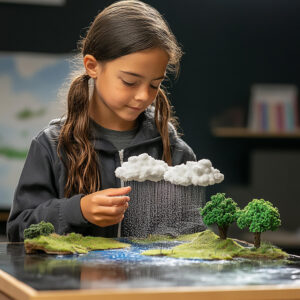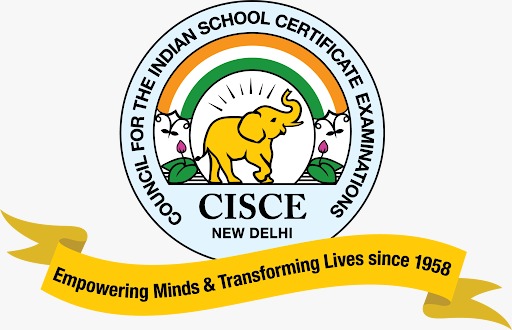Education is more than just a right; it is a transformative force that shapes individuals, communities, and societies. The power of education lies in its ability to empower people, break the cycle of poverty, and create opportunities for a brighter future. In this blog, we delve into how education makes a difference every day, exploring its multifaceted impact on personal growth, societal progress, and global development.
The Transformative Power of Education
The power of education transcends the classroom, influencing every aspect of human life. A well-rounded education equips individuals with the knowledge and skills needed to navigate life’s challenges. It fosters critical thinking, creativity, and problem-solving abilities, enabling individuals to adapt to a rapidly changing world. Moreover, education cultivates values such as empathy, resilience, and tolerance, which are essential for building harmonious communities. By promoting cultural awareness and mutual respect, education bridges societal divides and fosters unity.
Breaking the Cycle of Poverty
One of the most profound impacts of education is its role in alleviating poverty. According to UNESCO, every additional year of schooling increases an individual’s earning potential by approximately 10%. By empowering individuals with marketable skills, education opens doors to employment opportunities, financial stability, and economic growth. For families and communities, the ripple effects are significant. Educated parents are more likely to prioritize the education of their children, creating a virtuous cycle of learning and development. In regions where education is accessible and prioritized, communities thrive, and poverty becomes a distant memory.
Education as a Tool for Empowerment
Education empowers individuals to take control of their lives. For women and girls, in particular, education is a catalyst for change. When girls receive an education, they are less likely to marry early, more likely to participate in the workforce, and more likely to invest in the health and education of their children. This empowerment extends to marginalized communities. Education provides a platform for underprivileged groups to voice their concerns, challenge discrimination, and demand their rights. Through education, individuals gain the confidence and resources to advocate for equality and justice.
The Role of Education in Shaping Societies
Education plays a crucial role in shaping the values and norms of society. It instills a sense of responsibility and citizenship, encouraging individuals to contribute to the common good. By promoting ethical behavior and civic engagement, education helps build societies that are fair, inclusive, and democratic. Furthermore, education drives innovation and progress. From groundbreaking scientific discoveries to technological advancements, educated minds are at the forefront of innovation. These contributions fuel economic development and improve the quality of life for all.
The Importance of Lifelong Learning
The power of education extends beyond formal schooling. In today’s fast-paced world, lifelong learning is essential for personal and professional growth. Continuous education allows individuals to stay updated with evolving trends, acquire new skills, and remain competitive in the job market. Lifelong learning also promotes intellectual curiosity and personal fulfillment. Whether it’s learning a new language, mastering a hobby, or exploring a new field, education enriches life and keeps the mind active.
Education and Global Development
On a global scale, education is a driving force for sustainable development. The United Nations recognizes education as a key component of its Sustainable Development Goals (SDGs), particularly Goal 4, which aims to “ensure inclusive and equitable quality education and promote lifelong learning opportunities for all.” By addressing global challenges such as poverty, inequality, and climate change, education lays the foundation for a more sustainable future. It equips individuals with the knowledge and skills needed to tackle these challenges and contribute to the well-being of the planet.
Real-Life Examples of Education’s Impact
1. Bridging Gaps in Rural India
In rural India, education initiatives have transformed communities by providing access to quality schooling. Organizations like the Akshaya Patra Foundation ensure that children from low-income families receive both education and nutritious meals, empowering them to break free from the constraints of poverty.
2. Empowering Women in Africa
Programs like “Educate Girls” in Africa have demonstrated the transformative impact of education on women’s lives. By equipping girls with education, these initiatives have reduced gender disparities and fostered economic independence.
3. Promoting Innovation in Developed Nations
In countries like Finland, where education systems prioritize creativity and holistic development, students excel in problem-solving and critical thinking. This emphasis on innovation has positioned Finland as a leader in global education.
Challenges in Realizing the Power of Education
Despite its potential, education faces numerous challenges worldwide. Lack of access, inadequate infrastructure, and socio-economic barriers prevent millions of children from attending school. Gender discrimination, cultural norms, and political instability further exacerbate these challenges. Addressing these issues requires a concerted effort from governments, NGOs, and communities. Investments in education infrastructure, teacher training, and technology integration are crucial for ensuring that education is accessible and inclusive.
The Role of Technology in Education
Technology has revolutionized the education landscape, making learning more accessible and engaging. Online platforms, digital classrooms, and e-learning tools have bridged geographical gaps, enabling students to access quality education from anywhere in the world. Moreover, technology fosters personalized learning experiences. Adaptive learning systems cater to individual needs, allowing students to progress at their own pace. This approach enhances understanding and retention, maximizing the impact of education.
The Emotional Impact of Education
Education is not just about academics; it’s also about emotional and social development. It provides a sense of purpose and direction, instilling confidence and self-esteem in learners. For children, education fosters curiosity and a love for learning, setting the stage for lifelong growth. Additionally, education creates a sense of belonging. Schools and educational institutions serve as communities where individuals forge meaningful connections, share experiences, and learn from one another.
How You Can Make a Difference
Every individual has a role to play in harnessing the power of education. Here are some ways you can contribute:
- Support educational initiatives: Donate to organizations that promote education in underserved regions.
- Volunteer as a mentor or teacher: Share your knowledge and skills with those in need.
- Advocate for education policies: Voice your support for policies that prioritize education funding and accessibility.
- Promote lifelong learning: Encourage yourself and others to pursue continuous education and personal development.
Conclusion
The power of education is undeniable. It shapes minds, transforms lives, and builds nations. By investing in education, we pave the way for a more equitable and prosperous world. As we recognize the difference that education makes every day, let us commit to supporting and promoting this transformative force for generations to come. Let the journey toward enlightenment begin with a single step—a step toward empowering education.
FAQs
Education is transformative because it equips individuals with knowledge, skills, and values that empower them to overcome challenges, achieve personal growth, and contribute to societal progress. It fosters critical thinking, creativity, and empathy, which are essential for building a better world.
Education increases earning potential, provides access to better job opportunities, and empowers individuals to make informed decisions. Educated individuals are more likely to prioritize their children’s education, creating a cycle of economic stability and growth for future generations.
Education plays a crucial role in reducing gender disparities by empowering women and girls with knowledge and skills. Educated women are less likely to face early marriage, are more likely to participate in the workforce, and contribute to community development, thereby fostering equality.






